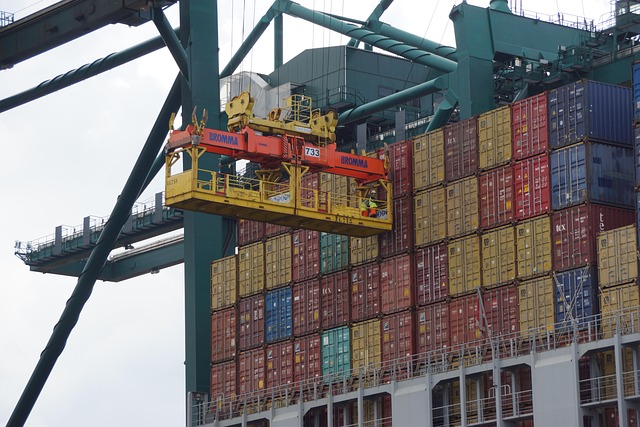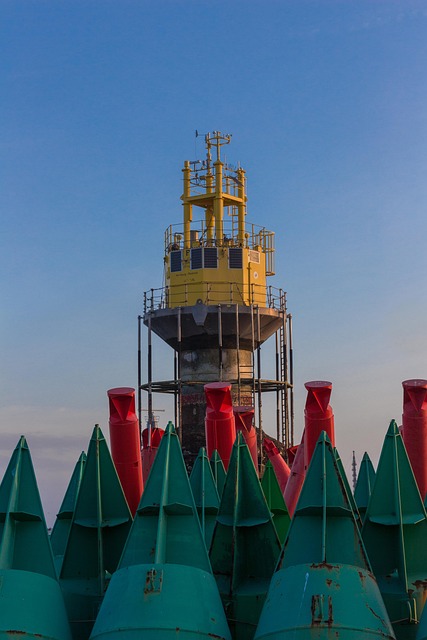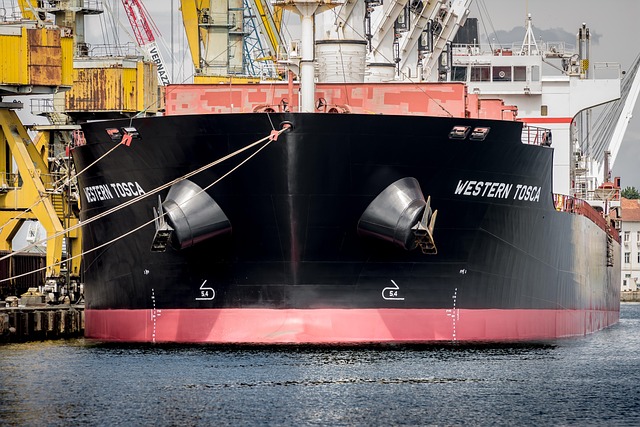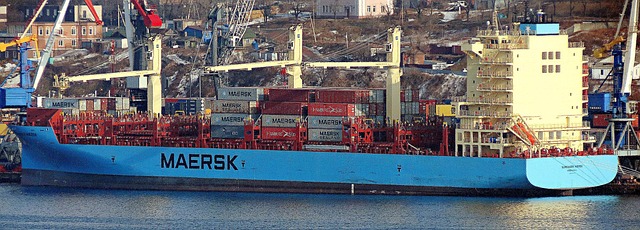Condensation in refrigerated storage containers is a critical issue for maintaining product quality. Understanding its causes and choosing well-insulated, heavy-duty containers with advanced materials like stainless steel and cutting-edge insulation technologies is key. These features ensure optimal temperature control, durability, energy efficiency, and condensation resistance, benefiting industries from food to pharmaceuticals. Customizable options cater to diverse needs, making refrigerated storage containers versatile assets for reliable cold storage in various sectors.
In the realm of food preservation and logistics, heavy-duty refrigerated storage containers are essential. However, one common challenge—condensation—can lead to spoilage and inefficiencies. This article delves into the innovative design and materials behind a game-changing solution: a heavy-duty refrigerated storage container resistant to condensation. We explore the science behind this issue, highlight key design features, discuss construction techniques, and uncover the extensive benefits for various industries, revolutionizing how we store perishable goods.
- Understanding Condensation in Refrigerated Storage
- Design Features for Heavy-Duty Containers
- Materials and Construction Techniques
- Benefits of Condensation Resistance
- Applications and Use Cases
Understanding Condensation in Refrigerated Storage

Condensation is a common issue in refrigerated storage containers, particularly when storing items that give off moisture or breathing in humid air. It occurs when warm, moist air comes into contact with a cold surface within the container, causing water vapor to condense and form droplets on the interior walls, floors, and ceilings. Over time, these droplets can accumulate and create an environment conducive to mold growth and spoilage of perishable goods.
Understanding condensation is crucial for choosing the right refrigerated storage container. Key factors that influence its formation include the temperature difference between the inside and outside of the container, relative humidity, and the nature of the products being stored. Opting for a heavy-duty, well-insulated refrigerated storage container designed to resist condensation can significantly reduce these issues, ensuring the safety and longevity of your goods. Consider features like seamless construction, high-quality insulation, and robust sealing to create a truly energy-efficient and reliable cold storage solution. Whether you’re looking to buy, rent, or customize a refrigerated storage container for sale, selecting one built to combat condensation will prove invaluable.
Design Features for Heavy-Duty Containers

In designing heavy-duty refrigerated storage containers, several key features are essential to ensure optimal performance and reliability in various environments. First, these containers must be built with robust materials capable of enduring harsh conditions, including corrosive elements often found in outdoor settings or industrial applications. Stainless steel construction is a popular choice for its durability and resistance to rust, making it ideal for prolonged use. Additionally, the insulation plays a pivotal role in maintaining the desired temperature, thereby preventing condensation. Advanced insulating materials like polyurethanes or expanded polystyrene ensure efficient heat retention or heat exclusion, depending on whether the container serves as a cold storage unit or a reefer shipping container.
Refrigerated storage containers also incorporate sophisticated cooling systems tailored to specific needs. For instance, direct-drive or inverter compressors offer precise temperature control, allowing users to rent refrigerated storage containers or buy them for sale with customizable settings. This flexibility is crucial for perishable goods requiring different cold storage solutions. Furthermore, the design should account for easy accessibility and maintenance, featuring secure yet convenient door mechanisms and serviceable components. These features contribute to the container’s longevity and operational efficiency, making it a reliable refrigerated storage unit or warehouse container for diverse industries.
Materials and Construction Techniques

In the realm of heavy-duty refrigerated storage containers, materials and construction techniques play a pivotal role in ensuring optimal performance and longevity. These containers, designed to maintain ideal temperatures for perishable goods, leverage advanced materials such as high-grade stainless steel and state-of-the-art insulation technologies. Stainless steel, renowned for its corrosion resistance and durability, forms the exterior shell, safeguarding against even the harshest environmental conditions. Insulation, a critical component, is meticulously engineered to trap cold air, preventing heat transfer and minimizing energy loss. This dual focus on robust materials and meticulous construction results in refrigerated storage containers that offer superior temperature control, making them indispensable for various industries.
Moreover, modern construction techniques ensure these containers are not just insulated but also highly efficient. Advanced sealing mechanisms and vacuum-insulated panels contribute to their energy efficiency, reducing operational costs. Customization is another key aspect, allowing users to buy or rent refrigerated storage containers tailored to specific needs—whether it’s a new, state-of-the-art reefer shipping container or a used, modular refrigerated storage unit. With dimensions and prices varying to accommodate diverse requirements, these containers serve as versatile, portable, and reliable cold storage solutions for various applications, including warehousing, transportation, and temporary storage needs.
Benefits of Condensation Resistance
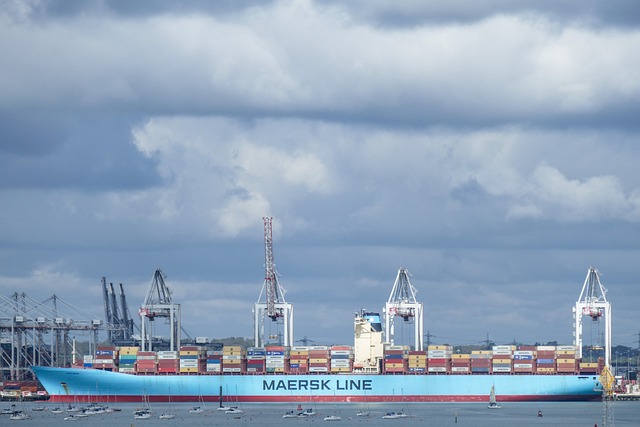
Condensation resistance in heavy-duty refrigerated storage containers offers a multitude of benefits for businesses and individuals alike. By minimizing condensation, these containers provide a more consistent and controlled environment for storing temperature-sensitive goods. This feature is particularly valuable in regions with high humidity or variable weather conditions, where excessive moisture can compromise the integrity and quality of stored items.
Moreover, condensate management in refrigerated storage containers improves energy efficiency. Condensation on interior surfaces can lead to heat transfer, necessitating more frequent and intensive cooling. A condensation-resistant design reduces this effect, allowing for optimized temperature control and lower operational costs. This advantage is especially significant for long-term storage or in applications where maintaining specific product conditions is critical, such as in food processing, pharmaceutical distribution, and medical supply chains.
Applications and Use Cases

Refrigerated storage containers have a wide range of applications across various industries, making them a versatile and indispensable asset for businesses requiring reliable cold storage solutions. These containers are ideal for perishable food items, pharmaceuticals, and floral arrangements, where maintaining specific temperature conditions is critical to prevent spoilage or deterioration. For instance, in the agricultural sector, they can be used for storing fresh produce during transportation and distribution, ensuring it stays fresh for longer periods.
Moreover, these refrigerated units are not limited to traditional cold storage. They find use in temporary events and pop-up stores, providing a portable solution for retailers to showcase and sell chilled or frozen goods. Additionally, they can be employed as mobile refrigeration units for on-site deliveries, catering trucks, or even in remote locations where establishing a permanent cold storage facility is impractical. With various sizes and customization options available, businesses can choose the perfect refrigerated container to meet their specific needs, whether it’s a new, used, or custom-built solution, ensuring optimal temperature control and extended shelf life for valuable products.
Heavy-duty refrigerated storage containers, designed to resist condensation, offer a robust solution for maintaining optimal temperatures in various industries. By understanding the causes of condensation and employing innovative design features, materials, and construction techniques, these containers ensure efficient food preservation and product quality. The benefits extend to reduced energy costs, increased longevity, and versatility in diverse applications. With their advanced technology, these refrigerated storage containers are a game-changer for businesses seeking reliable and long-lasting temperature control solutions.
